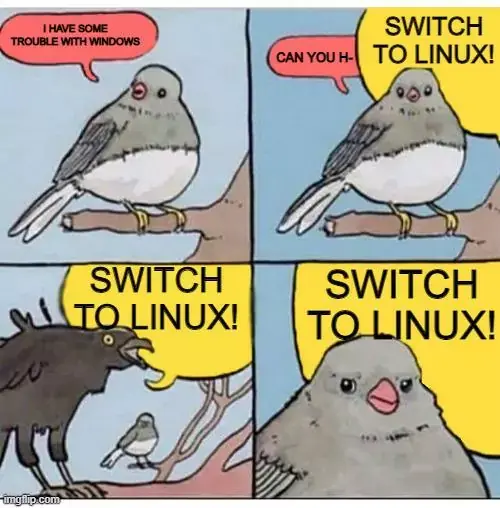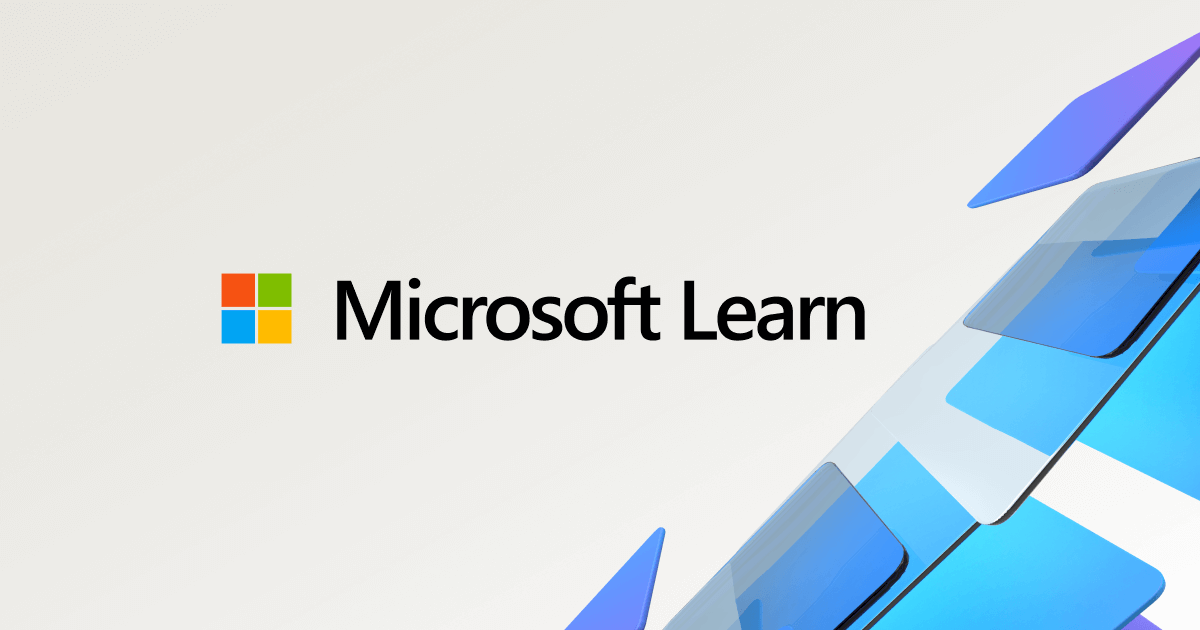Thanks! Every time someone tells me they are having issues with their Windows computer I will refer them to this official Microsoft guide.
Like this?

It’s not me saying they should switch to Linux, it’s the official Microsoft documentation.
Don’t. This guide is needlessly complicated and will just confuse people.
- Coose a Linux distribution: Ubuntu, Debian, Kali Linux, OpenSUSE, etc
:')

This is nice find for kids pc.
Bruh I downloaded these tools when I was like 7
Ugh, I hate this. At a time when many are searching the internet for guides, they’re injecting the search results with “It’s better if you keep Windows. But if you really, really want to, you can go through the COMPLICATED process of installing Linux BARE METAL 😱”
I think that’s exaggerating. The instructions are actually fairly neutral and extremely informative, minus the obvious upsells on Microsoft software and services. It’s clear that they ordered the list of install methods by lowest complexity and highest user-friendliness, specifically for people who have only ever known Windows. It’s a good thing for Linux to give this audience a fallback option if something goes wrong with their install and they are unable to use it or fix it. If they get frustrated or brick their PC the first time they use Linux, they’ll likely go back to Windows and never return.
They explain virtual machines, dual booting, the various pros and cons to different install methods, which methods are suitable for which purposes… I wish I had such a helpful article the first time I used Linux.
Now, my cynical read on this article is that it’s a way for Microsoft to avoid the appearance of monopolizing the desktop market: “see regulators? we show people how they can leave our closed garden ecosystem!” But the text of the article is hardly one massive scare tactic.
Yeah, I do agree. It just bothers me that they’re trying to pass off emulating a Linux installation (under Windows hypervision) as “installing” and refer to a true install as “bare metal”, as if your Windows installation isn’t. But it does give new users a chance to try it out.
Virtualization is not “emulating” and a bare metal install is a bare metal installation. These are standard terms. And it’s a hypervisor, no idea what the hell a hypervision is.
deleted by creator
All I see is WSL, WSL, WSL!
I installed WSL straight out of the box and its been nothing but problems for me. Weird errors, reinstallations, commands not working.
After 2 days, I got one docker container running only to discover you can’t pass through hardware devices. (That I know of)
I’m going the VM route tonight. Maybe a wipe and reinstall too. The system is days old and no data stored yet.
I have a Lenovo N22 Chromebook from like… a decade ago. It has the linux install menu so in theory its meant to be a simple install, but every-single-time for 2 years of attempts, has failed. Anyone have any ideas on what I can do to get it up and running? Im kinda at my wits end with it tbh.
It has the linux install menu
The what now?
Get a USB stick, make it bootable, get your chosen distro on it and then boot from that on your Chromebook. Everything else should be self explanatory, assuming you’re not going to some advanced distro.
Ventoy is a very easy way to do this, as you just drop the .iso files into its folder (and you can have multiple ones on the stick too), but not every single distro is supported (most of the commonly used ones are though).https://support.google.com/chromebook/answer/9145439?hl=en
Basically you go into the settings and find Linux development environment and turn it on. Setup always fails for me. But yeah I have a few usb keys lying around. I’ll charge this chromebook and give it another go later. Do you have any suggestions for a really lightweight distro? I just want to stop using it with chrome since updates ended a year ago.






